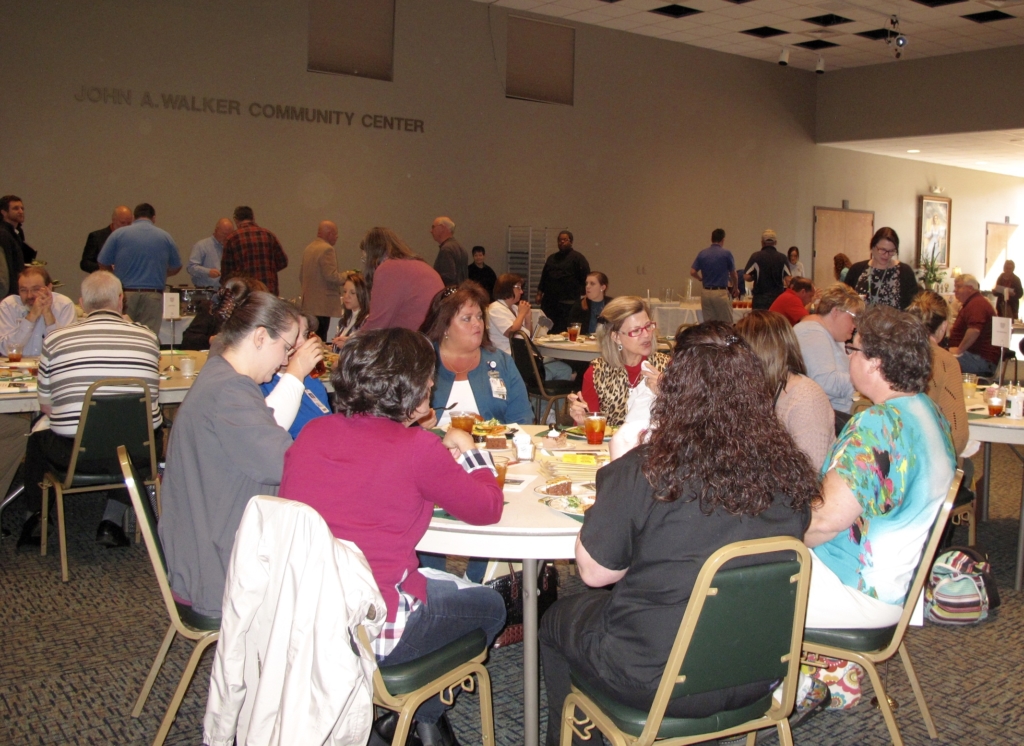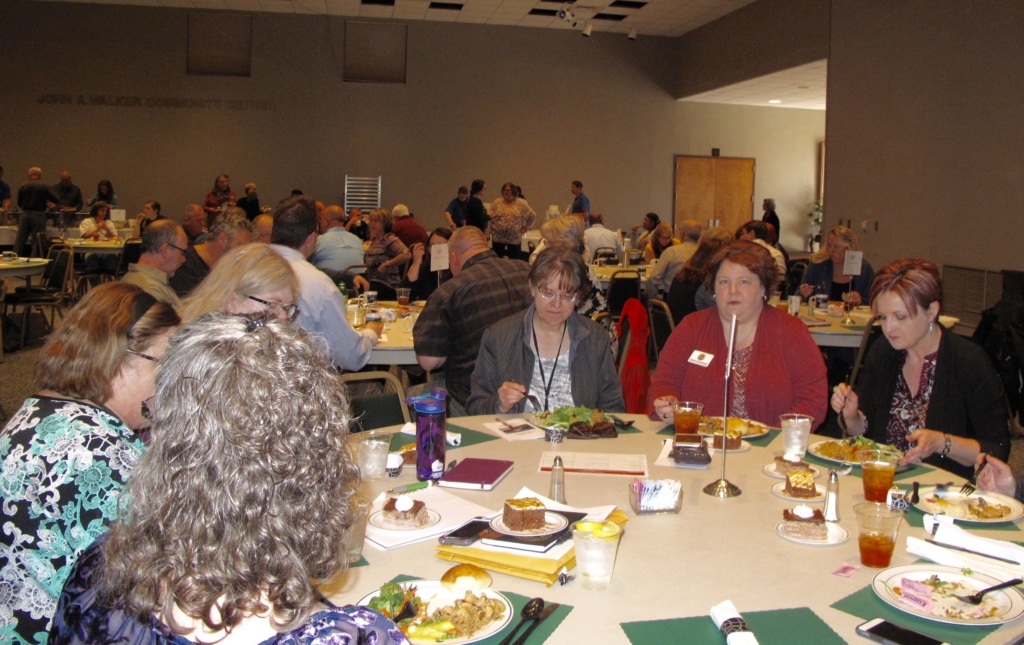Wilkes Community College’s Program Advisory Committees held a kickoff event in January 2018 at the Walker Center on the Wilkes Campus.
Program Advisory Committees are an essential link between the area’s business and industry community and the college. Whether preparing students for entry into the world of work, or for transfer to a four-year college or university, advisory committees provide input to ensure the relevance of the college’s curricula in a rapidly changing world. Additionally, the committees advise the institution regarding the improvement of programs in an effort to more adequately meet the needs of the community.
Committee members are local educators, business and industry representatives and local citizens from the three-county service area who are familiar with and interested in the needs of the community. Their expertise in the areas they represent provide opportunities for suggestions, recommendations and assistance with regards to specific programs.
“One of the primary responsibilities of Wilkes Community College is to produce a highly skilled workforce that meets the needs of employers throughout our service area and beyond. We rely on our advisory committees to keep the college informed of changes in their varied businesses and industries in our region and the skill set potential employees need to fill any jobs,” said WCC President Dr. Jeff Cox. “We work diligently to ensure that the college curricula and programs are current and relevant in order to supply a knowledgeable and skilled workforce. Additionally, the college works to empower students with soft skills such as working collaboratively in a group setting, maintaining a strong work ethic and demonstrating effective communications skills.”
There are 166 advisory members representing the following areas: AccessAbility Services; Associate Degree Nursing; Business Technologies; College Readiness; Computer Technologies; Criminal Justice; Culinary Arts/Baking & Pastry Arts; Early Childhood Education; Emergency Medical Science; Human Services; Learning Resources; Medical Assisting; Radiography; Respiratory Therapy; and SAGE (Supporting Academic Goals for Education).
The Advertising & Graphic Design Program Committee discussed changes made in the curriculum to ease completion in technical programs, which would better suit the needs of the student. Upgrades were made to software to give students the most-up-to-date programs to work with. The graphics lab was upgraded last fall that included all Mac computers.
The Respiratory Advisory Committee discussed topics that include the graduation success rate on board exams. All graduating students last year passed their boards and are employed as Registered Respiratory Therapists. The committee also discussed increased job opportunities and the possibility of expanding the program to accommodate more applicants in the future to meet the demands of the profession. Currently, there are only 10 applicants accepted each year.
“We are very grateful to all Program Advisory Committee members for sharing their time and expertise with the college. The input from our business and industry representatives is truly invaluable to the college, as it ensures we are keeping abreast of their changing employment needs,” added Dr. Cox.

The Radiography Advisory Committee

Academic Support Center Advisory Committee
